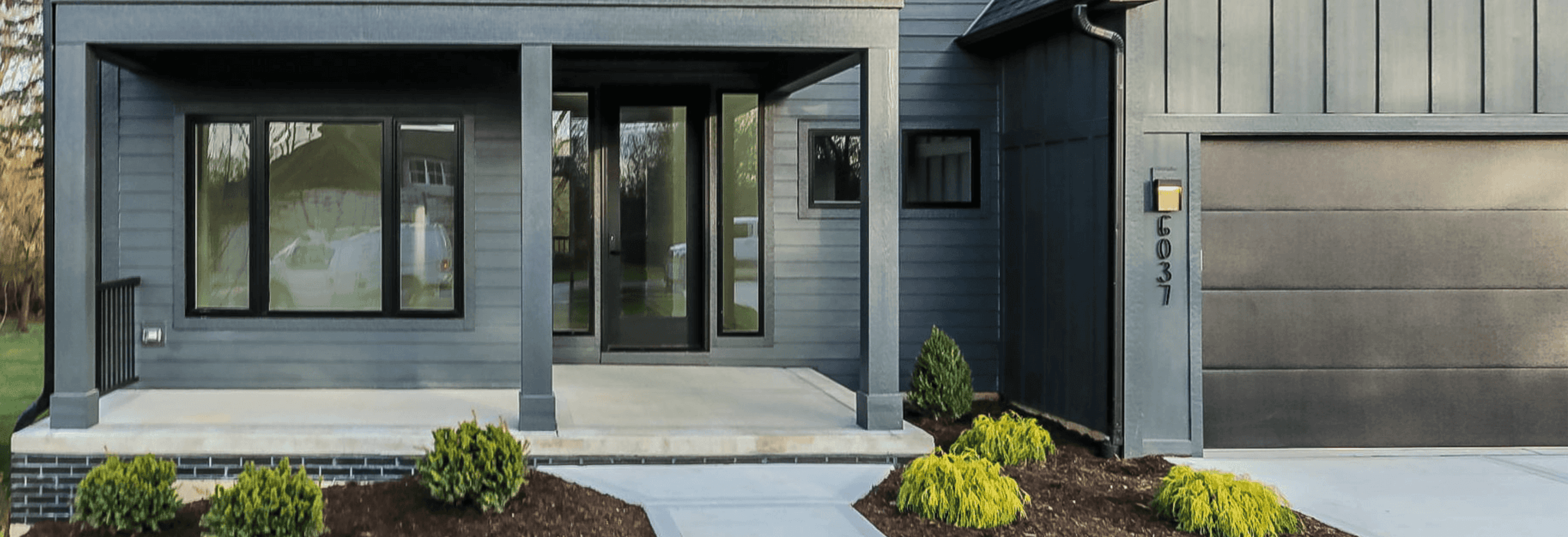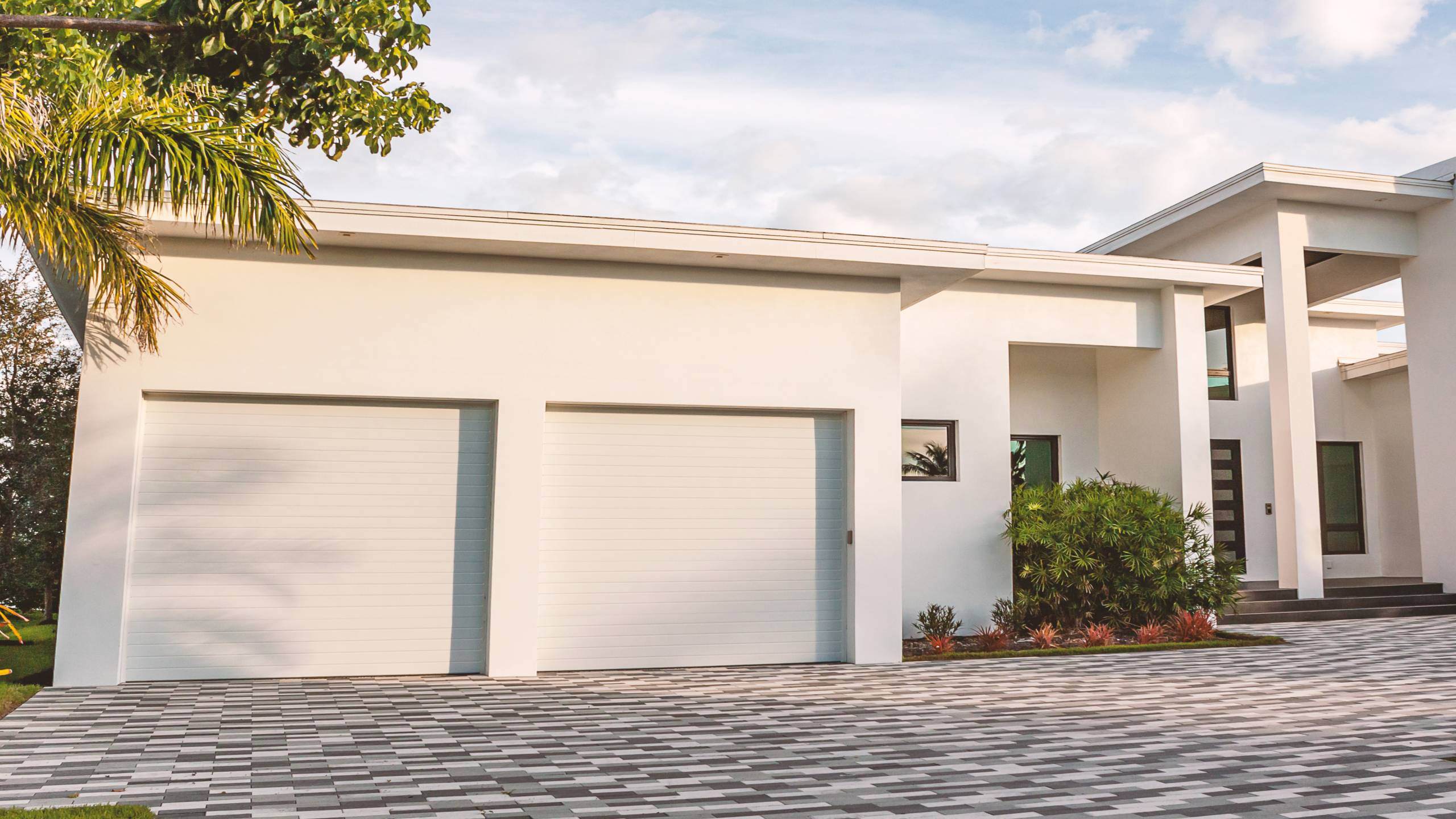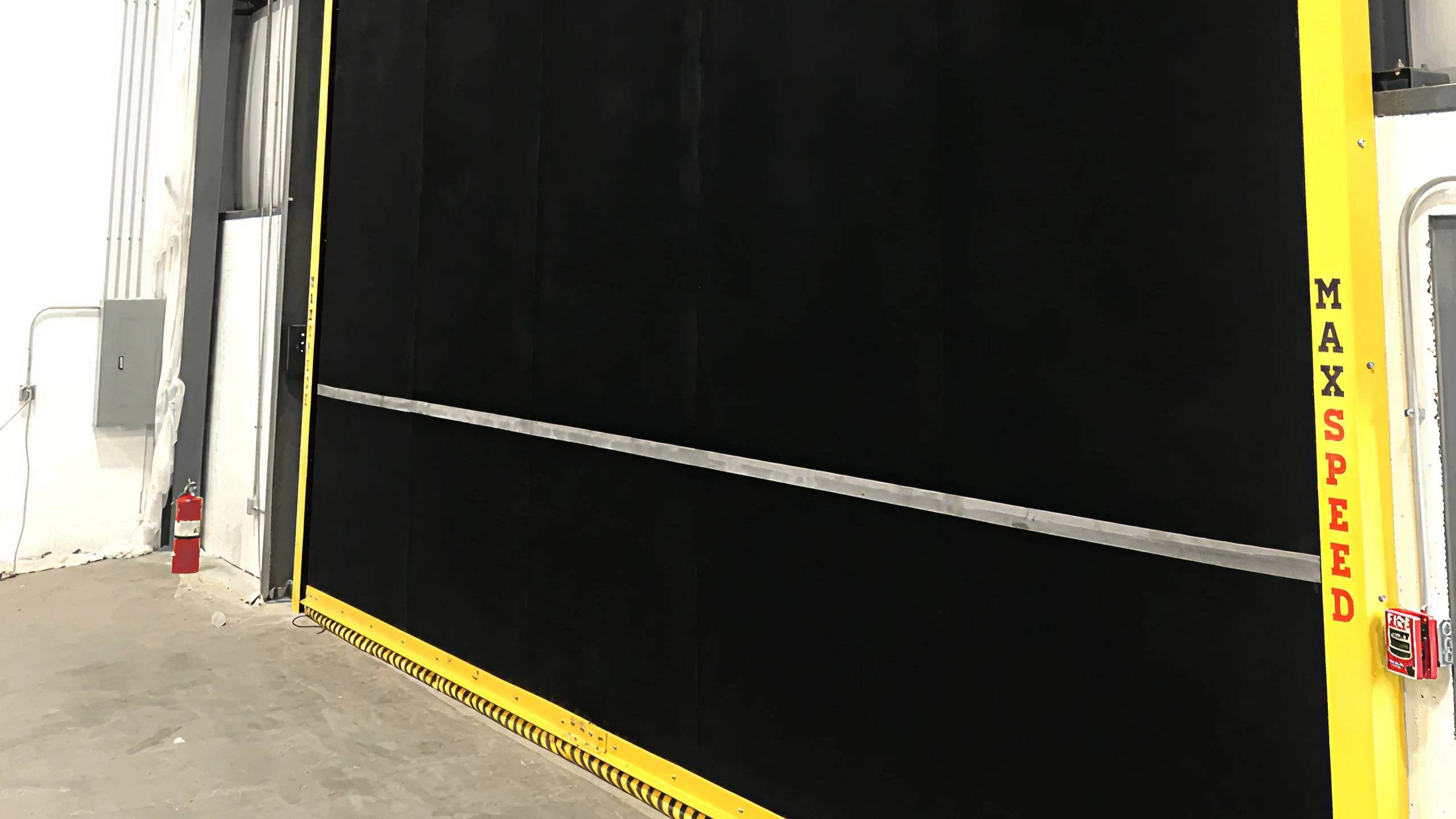When it comes to shopping for a new residential garage door, insulation can make a big difference. It can save you money on your energy bills, reduce noise pollution, and stabilise your garage temperature.
But, you don’t always need it.
Understanding when it’s a must-have versus when it’s a nice-to-have is important when you’re considering buying a new residential garage door. Here, we’ll delve into types of insulation, benefits, and more, so you can make an informed choice.
Types of insulation
There are two popular insulation materials:
- Polystyrene
- Polyurethane
Polystyrene insulates by limiting heat transfer through its low thermal conductivity and closed-cell structure which minimizes airflow within it.
Polyurethane has a lower thermal conductivity and is denser than polystyrene. It’s often used as a foam that expands to seal gaps to form a tight thermal barrier. Polyurethane will also add durability to your door, making it more resistant to vibrations and shaking.
Both materials are versatile, moisture-resistant, and great at insulating. Determining which insulation is best for you depends on what you’re going to use your garage for and the climate conditions of where you live.
R-value & STC ratings
Insulation is often measured using these values. These are good indicators of how well your chosen door will insulate and reduce noise.
R-value on garage doors indicates the door's ability to block cold or hot air from entering your home. The higher the R-value, the better the insulation power.
The STC rating of a garage door indicates its effectiveness in muffling sound. The higher the STC rating, the more effectively the door will block sound. If noise reduction is a concern for you (e.g., if you have a drumset in your garage), a garage door with a higher STC rating would be ideal. Higher R-values are generally associated with higher STC ratings.
What’s best? Insulated garage doors and non-insulated garage doors.
Insulated garage doors
| Pros | Cons |
|
|
Non-insulated garage doors
| Pros | Cons |
|
|
Do you need an insulated garage door? Answer these 5 questions:
- Do you have an attached garage?
- Do you live in an area where temperatures vary drastically throughout the year or are extremely hot or cold year-round?
- Do you use your garage as a workspace or for hobbies?
- Do you keep animals or pets in your garage?
- Are you planning to sell your home within the next 10 years?
Yes
If you answered yes to two or more of the above questions, an insulated garage door is the best option for you.
Insulation is particularly important for homes with attached garages since your garage shares at least one wall with the rest of your house. A poorly insulated garage door will allow outside air into your home and garage which will increase your heating and cooling costs. You might also want to consider an insulated door if your garage shares a wall with a bedroom, as it will be significantly quieter to operate.
If you keep pets in your garage or use it as a workspace or for hobbies, an insulated garage door will help to maintain a safe and comfortable inside temperature. Any personal items, like cars, stored in your garage will also benefit from having a more stable environment. Extreme temperatures have a negative effect on your car's fluids, battery life, tire pressure, and more.
Insulation will also facilitate with noise control - if you work with power tools, play instruments, listen to loud music, etc. in your garage, your neighbors will thank your insulated door for suppressing the noise.
And, if you plan to put your house on the market within the next 10 years, it’s smart to invest in an insulated garage door. Reducing annual energy costs and maximizing your garage’s usability only boosts your overall curb appeal.
Not necessarily
If you answered no to three or more of the above questions, you may not need to spend the extra money on an insulated garage door.
If you have a detached garage, you might not need to concern yourself about the temperature loss inside your garage. Likewise, outside temperatures and noise will not be able to creep into your home from your garage.
You could also bypass the expense of an insulated garage door if you live in an area with a mild year-round climate, as the weather won’t have a significant impact on the temperature inside.
Another factor to consider is how often you operate your residential garage door. if you regularly leave it open for extended periods of time, it breaks your home’s thermal envelope, making insulation much less effective.
Insulation or no insulation – what’s best for you?
If you’d benefit from having insulation, we’d always recommend buying an insulated garage door. But, if you don’t need it and wouldn’t experience any benefits, don’t spend the extra money. No garage door company should try to convince you that you need insulation regardless of how you use your space.
The choice is yours – now, we hope you have the information you need to decide for yourself. But, if you do have any questions related to garage door insulation, you can always get in touch with one of our local dealers. They’ll be happy to help.
/Rectangle%201.png) Planks
Planks
/Rectangle%201%20(3).png) Sterling
Sterling
/Rectangle%201%20(4).png) Skyline flush
Skyline flush
/Rectangle%201%20(5).png) Shoreline
Shoreline
/Rectangle%201%20(1).png) Overlay carriage house
Overlay carriage house
/Rectangle%201%20(9).png) Raised panel
Raised panel
.png) Stamped carriage house
Stamped carriage house
/Rectangle%201%20(2).png) Stamped shaker
Stamped shaker
.png) Full-view aluminium
Full-view aluminium
.png) Recessed panel
Recessed panel












